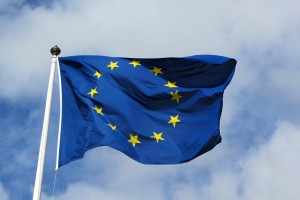
After more than 40 years of operation, DTVE is closing its doors and our website will no longer be updated daily. Thank you for all of your support.
Ansip: Euro-Parliament should move to EC position on copyright reform
 The key element of the European Commission’s proposals for copyright reform “was on the right track the first time round” and the European Parliament, which rejected plans to take the reform forward earlier this month, should “move closer to [the EC’s] initial proposal for its September vote” on the issue, according to EC VP Andrus Ansip.
The key element of the European Commission’s proposals for copyright reform “was on the right track the first time round” and the European Parliament, which rejected plans to take the reform forward earlier this month, should “move closer to [the EC’s] initial proposal for its September vote” on the issue, according to EC VP Andrus Ansip.
The EC had proposed measures to protect artists’ rights that included making internet platforms responsible for identifying copyright-protected material so that artists could be properly paid for its use. In a blog posting, Ansip compared this to “libraries counting books borrowed, or radio stations counting songs played”, and said that the EC had not proposed “changing the basic rules governing platforms’ responsibilities on the internet”. However, he said, the Parliament and EU governments had taken a different view and wanted to adapt the rules.
Ansip said it was important to avoid creating rules that lead to “wide-reaching filtering” of content and to maintain freedom of expression on the web. He said there should be provisions to “guard against over-removal of material” and to ensure that there was no “general monitoring” of the internet.
He denied that there was a hard choice between protecting artists and protecting the internet and rules should “make sure artists are paid fairly for their work, and at the same time protect freedom of expression and creativity on the internet”.
Ansip’s intervention follows the Parliament’s vote to reject its own Legal Affairs Committee’s recommendations to take the plan for reform forward at the beginning of this month.
In June, the committee approved two controversial articles – 13 and 11 – of the copyright proposals that respectively required platforms such as Google and Facebook to prevent users from uploading copyright material, and to enable publishers to force internet platforms to pay them for showing news content. The measures had attracted widespread criticism ahead of the committee’s vote, with a group of leading figures from the internet world writing to Parliament president Antonio Tajani to urge a rethink. The authors of the letter who included world wide web creator Tim Berners-Lee and Wikipedia founder Jimmy Wales, said that adoption of article 13 would imply “an unprecedented step towards the transformation of the Internet from an open platform for sharing and innovation, into a tool for the automated surveillance and control of its users”.
The Parliament subsequently rejected the committee’s proposals in a plenary session after intensive lobbying by internet companies, kicking back agreement on its position until September.
Under EU rules, the Commission drafts and proposes new laws, with the Parliament and European Council subsequently agreeing their own respective position on the proposed laws. This is followed by negotiations between the institutions which should ultimately lead to a final deal.
In his blog posting, Ansip said that the EC’s primary objective was to “adapt EU rules for the digital age” and to “make more films, series and other cultural material available between EU countries” as well as improving remuneration for content creators and artists, expanding their market opportunities and encouraging innovation.
Regarding article 11, Ansip argued that it was reasonable to grant press publishers the right “to make it easier for them to negotiate with online platforms about when their publications are used”.


